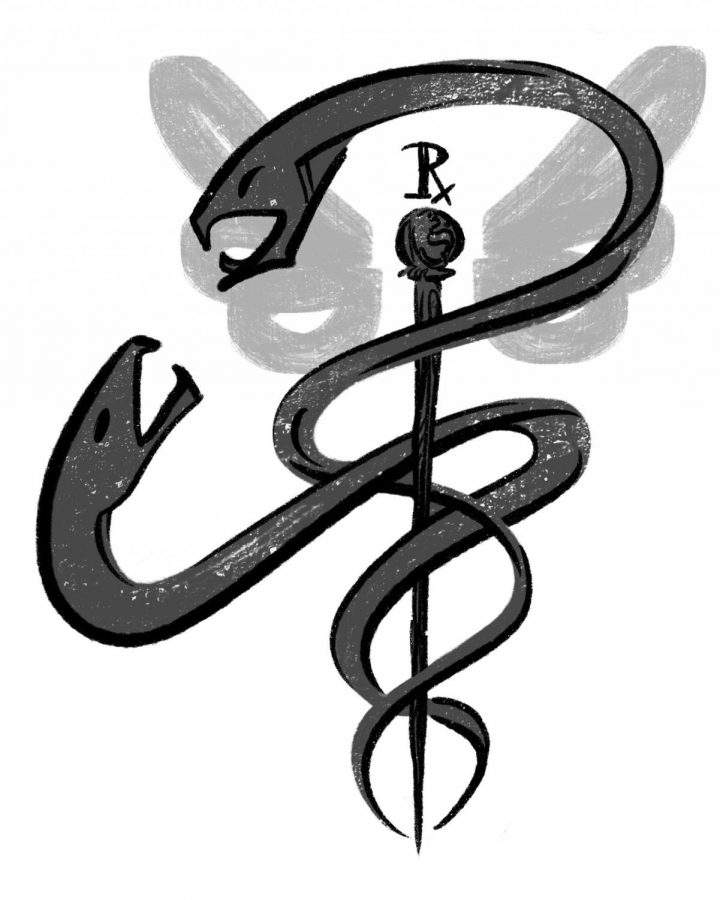What medical care is missing
February 27, 2020
“America’s healthcare system,” says Walter Cronkite, “is neither healthy, caring nor a system.” Most of the contemporary debate surrounding healthcare has to do with who pays for it rather than the structure of the industry itself. It is an assumption to believe that healthcare in its current form is healthcare at its best.
Upon looking closely at the way in which healthcare operates today, many see symptom mitigation to be a doctor’s sole purpose. While this is sometimes all that is necessary, it is often not. There is a fundamental misunderstanding regarding illness and treatment present in the contemporary conception of what it means to be given healthcare.
As long as the medical system functions as a business, it will treat its patients as customers. As the saying goes, “A patient cured is a customer lost.” This means that the goal of “big pharma” is not to fix the underlying conditions of illness, but rather to minimize symptoms. Doctors, naturally, are often an extension of this system. Economic forces incentivize a sort of quasi-help, where the patient feels “better,” but stays dependent upon the industry and inevitably degrades in condition. Just like there is a military-industrial complex and a prison-industrial complex, there is a medical-industrial complex.
The enabling condition for this ironic perversion of healthcare is confusion about what truly constitutes chronic illness. Doctors and patients often treat heart disease the same way that they treat something like Alzheimer’s. I believe many conditions in the US are considered chronic simply because they are pervasive and are rooted in things we don’t want to change. We have convinced ourselves that we have no control over ailments that we most certainly can control.
It very well may be that the key to de-incentivizing poor patient care is to change the nature of the medical industry so that it is not fundamentally economic. Though it is also possible that adequate patient care can come about as a function of demand — that is, if we change our beliefs around illness and the function of medicine.
A movement supported by some medical professionals called “functional medicine” aims to do what should be the job of healthcare: treat issues by their sources, not by their symptoms. From the functional medicine perspective, the best thing to do about an issue like chronic back pain is not to prescribe painkillers, but to find and eliminate the contributing factors to that condition.
Inevitably, people resist the movement towards functional medicine on the basis of believing that their condition cannot be treated at its cause. There is no obvious way of knowing exactly which conditions have concrete causes, but it is surely true that some chronic illnesses are effectively causeless, or have causes that are not treatable. What is required here is a certain level of open-mindedness on both sides of the issue. Functional medicine practitioners must realize that not everything is a matter of non-symptomatic, cause-based treatment, and the followers of the traditional system must be willing to think differently about the best treatment for patients.
It is clear that preventing or curing an illness is better than letting it fester. We should know that when it comes to the most common “chronic” ailments of our time, doctors are simply applying band-aid solutions.










Jane Hillemann • Apr 9, 2020 at 1:34 pm
Gavin, Good points. As a nurse practitioner for over 40 years, I have witnessed and participated in this ‘health’ care system. The abuse patients give their own bodies help to fuel much of their visits. Overweight, smoking, excess alcohol, and drug seeking contribute to many chronic conditions. Our environmental toxins and genetic mutations contribute to cancer and other disabilities. There are also unknowns of causation. Autoimmune diseases: what causes aberrations that result in the cells meant to fight off intruders instead attack our own organ cells? And many other perplexing causations result in diseases. I spent a lot of my professional life on the basics: how to eat, sleep, exercise, and handle emotions. Avoid toxins. Start with the basics and you will need much less “health” care!